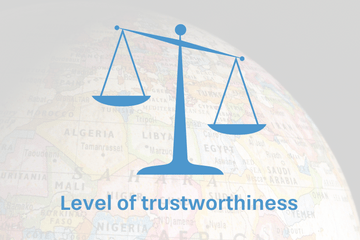Quality check: Assessing volunteering opportunities
For the uninitiated, determining the integrity of an organisation offering volunteer opportunities can be challenging. Beyond the specific criteria, it is essential to understand the intentions and perspectives of the parties involved.

cinfo is often confronted with questions relating to voluntary work, charity work or non-professional work in international cooperation (IC). Over a series of articles, we will shed light on various topics such as the value of volunteering for a professional career in IC, qualification criteria or the compensation or costs of placements.
This article looks at the criteria for assessing the quality of providers.
Reputable organisations maintain competent governance and management. They present their experience and approach, emphasise transparent communication and demonstrate care for all stakeholders.
But it is not just about integrity. Suitability is also important. Someone who wants to integrate international cooperation professionally has different needs than someone looking for a new experience or inspiration. Quality services come at a price, so even credible organisations may ask you for financial contributions. However, be wary if the primary intention seems to be profit or if ethical boundaries are crossed.
It is not just about integrity. Suitability is also important.
How can I tell if an organisation is trustworthy?
Simply asking this question is a step in the right direction. However, it is important for you to understand that organisations can vary greatly, as can the expectations of potential volunteers (see our other articles on this topic). To assess the trustworthiness of an organisation, consider the following:
- Fulfilment of promises: Does the organisation keep its promises? Does what you receive match your expectations and their assurances?
- Professionalism: Is the organisation well organised and professional in its operations and communications?
- Intentions and results: Do you understand the organisation's main intentions? Do they prioritise the interests of all involved, or are there signs of over-promising? It is important to identify who really benefits from the organisation's activities. Ensure that volunteers really do add value and, most importantly, do no harm.
It is important to identify who really benefits from the organisation's activities.
Navigating volunteer placements abroad: A checklist
Before you start volunteering abroad, it is important to be clear about your motivation - whether it is social engagement, gaining experience or professional development (as discussed in this article). It will help you to match your goals with the right organisations.
Be clear about your motivation.
Here is a checklist to help you assess an organisation's credibility:
- Transparency: Is information about the organisation easily accessible? Consider the date it was founded, whether it has a governing body, and whether annual reports are available.
- Training: Reputable organisations often offer or require training as a prerequisite for participation.
- Local presence: Ensure that the organisation either operates locally or has an accessible representative in the region.
- References: Trustworthy organisations should be happy to provide references, not only from previous participants, but also from independent agencies. Their engagement process should also be more thorough than simply asking for your name and credit card number.
- Standards and criteria: Look for written criteria for volunteer eligibility, codes of conduct, child protection policies and regular auditing processes.
- Financial aspects: While payment isn't a red flag in itself, it is important to understand its use. Quality assurance, partnership maintenance, information dissemination and volunteer training all require funding. Understand the financial structure of the organisation to assess whether cost sharing is justified.
For those considering youth and cultural exchanges, Intermundo offers certification based on a comprehensive set of criteria. More details are available here (in German, French or Italian).
Balancing commitment, finances and emotions
Self-reflection is key
Remain analytical and observant. Ask questions of potential organisations, but just as importantly, ask yourself: "What are my true motivations?" and "What tangible impact will I make?"
Understand your value
If you are new to volunteering, your immediate impact may be limited. Instead of making a significant difference, you are likely to gain more from the experience than you contribute. This isn't inherently negative, provided your involvement doesn't harm anyone, as in the examples of short-term volunteering in an orphanage resulting in frequent staff changes and re-traumatisation of children. Worse still is the scenario where children are falsely portrayed as orphans in order to attract donations.
You are likely to gain more from the experience than you contribute.
The cost of support
Quality training, placement and support often come at a price. It is important to distinguish between reasonable costs that contribute to your effectiveness and fees that feel like paying for the privilege of helping.
Profit vs. purpose
Remember that some organisations prioritise profit over true service. We take a closer look at the blurred lines between altruism and commerce in this article: Travelling with some "do-gooding" on the side – reflections on voluntourism.






